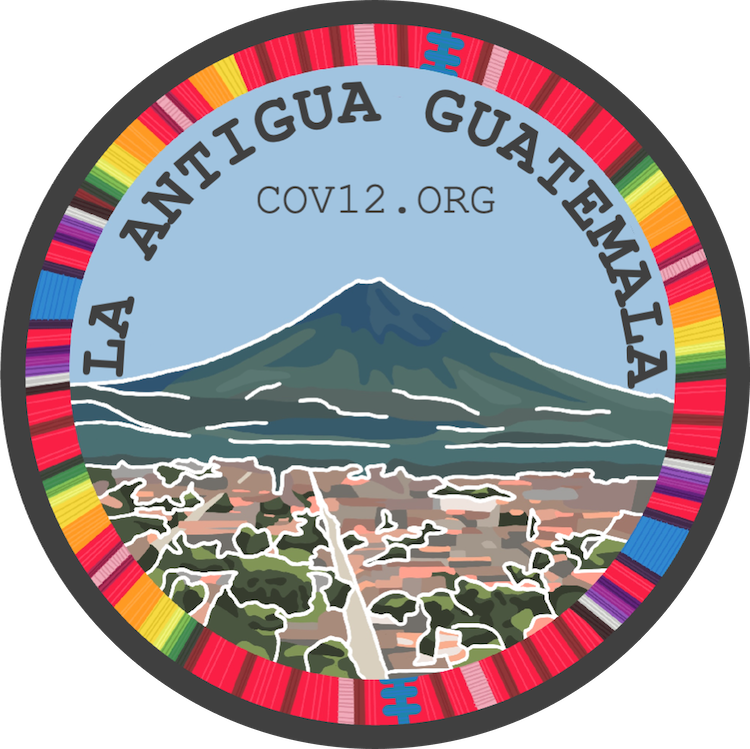General Information / Información General
Español
COV12 se realizará en La Antigua Guatemala en el Porta Hotel and Conference Center. La capacidad de la conferencia será de aproximadamente 650 participantes. La Antigua Guatemala es un ciudad colonial y turística y se ubica cerca de la Ciudad de Guatemala. Visitantes internacionales deben volar al Aeropuerto Internacional La Aurora en Ciudad de Guatemala, o tomar un autobús que también los llevara desde su país hasta Ciudad de Guatemala. Esta pagina contiene información sobre como llegar a La Antigua Guatemala y algunos consejos relacionados con el viaje y la permanencia en Antigua. Utilice los enlaces siguientes para descargar documentos informativos. Estos documentos se actualizarán periódicamente.
La información sobre el programa regular (11-17 febrero) se actualizarán en: https://cov12.iavceivolcano.org/program/
English
COV12 will be held in La Antigua Guatemala at the Porta Hotel and Conference Center. Conference capacity will be approximately 650 participants so we encourage people to register early. Antigua Guatemala is a touristic colonial city located close to Guatemala City. International visitors should fly to La Aurora International Airport in Guatemala City, or take a bus that will also take them from their country to Guatemala City. This page contains some useful information about how to get to Antigua Guatemala and some practical advice related to traveling to and staying in Antigua. Use the links below to download information documents. These documents will be updated regularly.
The Information about the regular program (February 11-17) will be updated at: https://cov12.iavceivolcano.org/program/
Información general para el visitante (pdf)
General travel information for the visitor (pdf)
Informacion de seguridad y contactos de emergencia (pdf)
Safety and emergency information (pdf)
About Cities on Volcanoes / Acerca de Ciudades en Volcanes
Español
Cities on Volcanoes es una conferencia internacional transdisciplinaria que trata específicamente con el tema del riesgo volcánico, su contexto social y cultural, y cómo las sociedades viven y comprenden su entorno volcánico.
Invitamos a participantes con un amplio espectro de experiencia deseosos de compartir y aprender sobre las interacciones humanas con los volcanes en Guatemala, la región y el mundo.
COV12 se enfocará en cuatro temas principales:
1) Volcanes y desarrollo sostenible Centrado en cómo reducir el riesgo en torno a los volcanes, co-existir con los volcanes y la actividad volcánica, y en cómo aprovechar el impacto positivo de los volcanes en el desarrollo.
2) Volcanes, las humanidades y las artes creativasTópicos interdisciplinarios en torno a los volcanes, las humanidades y las artes creativas; los volcanes como recursos simbólicos, la personae de los volcanes y la relación que tenemos con las geoformas volcánicas.
3) Volcanes y su contexto social, cultural y políticoTópicos interdisciplinarios sobre el entorno humano en el cual se insertan los volcanes, cómo esto impacta la forma en la que comprendemos y convivimos con estos sistemas, y cómo se puede apoyar el desarrollo de capacidades y mejorar la calidad de vida para las comunidades que habitan alrededor de los volcanes.
4) Del monitoreo volcánico y la evaluación de la amenaza a la gestión del riesgo Centrado en nuestra comprensión de cómo funcionan los volcanes desde su relevancia para la reducción del riesgo, cómo utilizamos ese conocimiento para informar la evaluación de la amenaza/peligro y cómo esto se propaga en la comunicación, gestión y reducción del riesgo en torno a los volcanes.
English
Cities on Volcanoes is a transdisciplinary international conference that deals specifically with volcanic risk, its social and cultural context, and how societies live with and make sense of their volcanic environment.
We invite participants with a broad spectrum of expertise eager to share and learn about human interactions with volcanoes in Guatemala, the region and the world.
COV12 will focus on four major themes including:
1) Volcanoes and Sustainable Development Centered on how to reduce risk around volcanoes, co-exist around volcanoes and volcanic activity and also harness the positive impact of volcanoes on development.
2) Volcanoes, the Humanities and Creative artsInterdisciplinary topics around volcanoes, the humanities and creative arts; volcanoes as symbolic resources, the personhood of volcanoes and the relationship we have with volcanic landforms.
3) Volcanoes and their Social, Cultural, and Political ContextInterdisciplinary topics around the human world within which volcanoes sit and how that impacts the way we understand and live with volcanoes, and importantly how capacity building can be supported and quality of life for communities living around volcanoes can be improved.
4) From Volcano Monitoring and Hazard Assessment to Risk ManagementCentered on our understanding of how volcanoes work as it relates directly to risk reduction, how we use that knowledge to inform hazard assessment and how that is propagated into communicating and managing risk and risk reduction around volcanoes.
Gallery

































